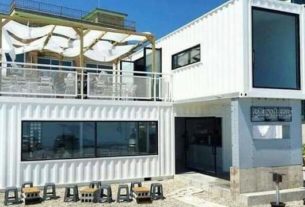
Ratch Group seeks partners for 2 gas-fired plants in Thailand’s Ratchaburi province
Deal worth $700m expected by June
24 May 2019
SET-listed Ratch Group is seeking business partners for two units of a gas-fired power plant in Ratchaburi province, with a combined power generation capacity of 1,400 megawatts (MW).
Chief executive Kijja Sripatthangkura said Ratch is in talks with many potential partners and expects to conclude a deal by June.
He did not disclose whether Ratch will be a major shareholder in this joint venture.
The total development cost of this power plant is estimated at US$700 million (22.4 billion baht).
“Ratch needs potential partners because of the massive investment cost in coming years,” said Mr Kijja.
Ratch is also working on an engineering design and conducting an environmental impact assessment study, he said.
Mr Kijja expects to sign a power purchase agreement with the state-run Electricity Generating Authority of Thailand (Egat), planning to buy the electricity from this project.
The two power generators at the Ratchaburi plant will replace a retired plant, wholly owned by Tri Energy (TECO), whose 700MW concession will expire next July.
Ratch plans to resell the power generator to other countries, he said.
Before the concession expires, Ratch was awarded the renewal to develop two power generators at the existing location with 1,400MW in April by the Energy Regulatory Commission.
TECO is the first group of independent power producers in Thailand, winning an auction to develop power plants to sell electricity to Egat in 1995 under the concession model, which ends in 2020.
Egat is also the major shareholder of Ratch.
Ratch recently announced a redefined business strategy by extending its investment portfolio to new infrastructure projects, and adding to its core competency — power generation.
The company expects infrastructure project spending to account for 20% of total investment by 2023, up from 10% now. This covers motorways, expressways, water and power investments.
Mr Kijja said this expansion plan is bound to many infrastructure projects in order to capture investment opportunities in the country.
“It is based on Thailand’s strategic plan, which will give priority to enhancing power security and infrastructure development to boost the country’s and the industrial sector’s competitiveness,” he said.
Mr Kijja said the power business in Thailand is reaching saturation point as the auctions for large power plants will not begin again for a decade.
Ratch first dipped its toe in infrastructure development in 2016 when it joined hands with Sino-Thai Engineering and Construction and BTS Group Holdings to establish the BSR consortium.
The consortium won the auction of two bids to develop and operate the mass transit Yellow and Pink lines in Bangkok. Both projects are being constructed.
But the consortium failed to nab the latest auction for a high-speed railway linking three airports under the government’s Eastern Economic Corridor scheme.
They are planning to join two bids for the Orange Line and the Red Line.
“Ratch will not stick solely to the power business, and we plan to seek other asset acquisitions both domestically and abroad, such as in Laos, Australia, Indonesia, Vietnam, China and the Philippines,” said Mr Kijja.
For 2019, Ratch has two investment projects planned: large and small power projects in Thailand.
Six overseas deals in Australia, Indonesia, Laos and Vietnam are undergoing feasibility studies and seeking local business partners.
He said Ratch is interested in upcoming infrastructure bids and new businesses such as the Internet of Things and telecommunication.
“Ratch will run its business and investment on the basis of enhancing necessary fundamentals, contributing to the country’s economic growth in the long run,” Mr Kijja said.
“Ratch decided to diversify into a new segment to retain recurring revenue and income for shareholders.”
Ratch has 180MW in combined capacity from three power plants that will begin commercial operation this year and realise revenue — the Collinsville Solar Farm in Australia, the Berkprai Cogeneration Power Plant and the Xe-Pian Xe-Namnoy Hydroelectric Power Plant, both in Laos.
Four projects are under construction with combined generation capacity of 487MW.
Source: https://www.bangkokpost.com/business/news/1682860/ratch-seeks-partners-for-2-gas-fired-plants


